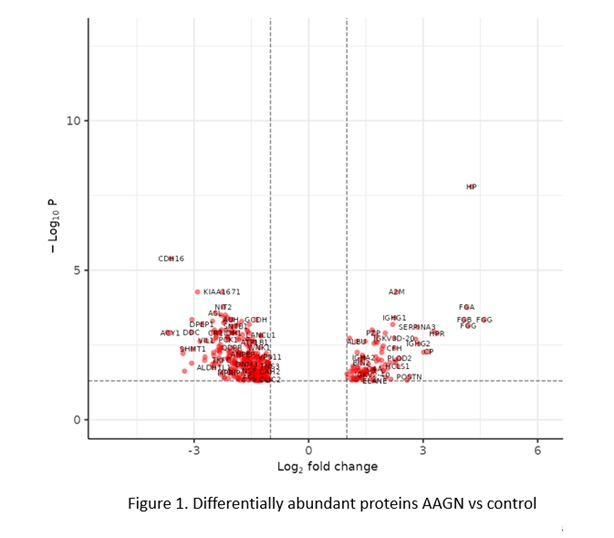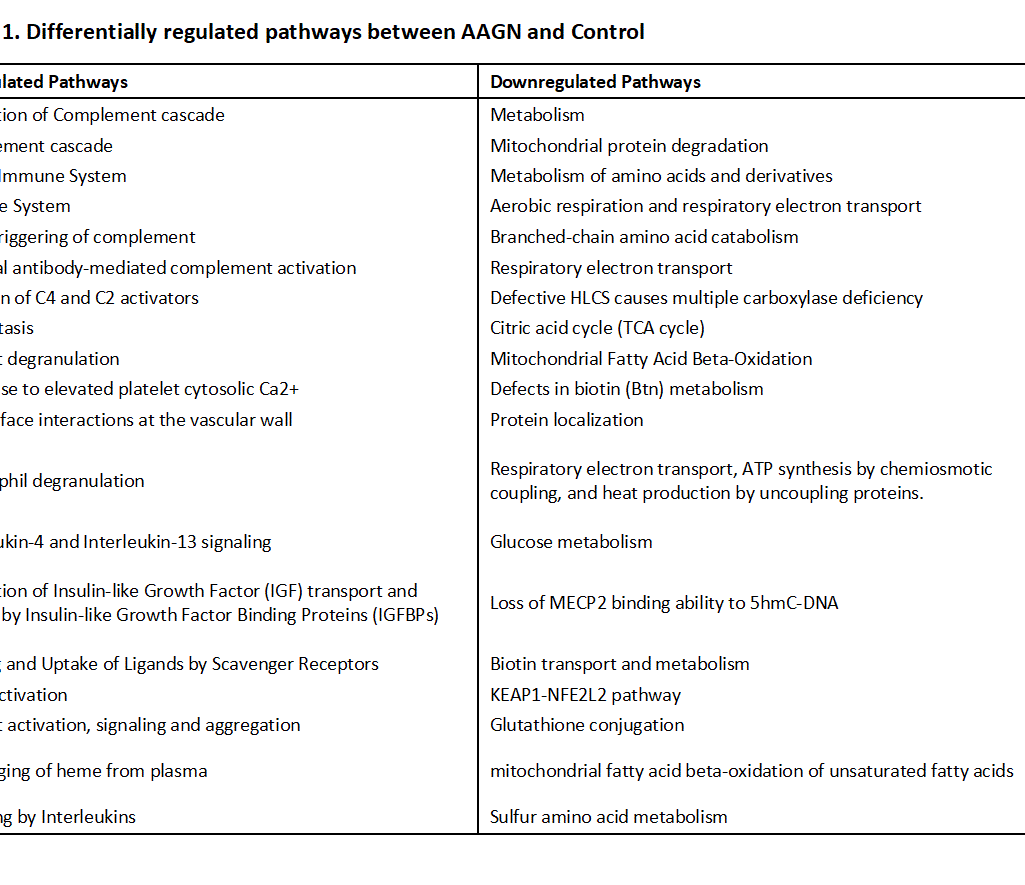Session Information
Session Type: Poster Session A
Session Time: 10:30AM-12:30PM
Background/Purpose: Crescentic glomerulonephritis (AAGN) is a common manifestation of ANCA-associated vasculitis (AAV) but does not occur in all patients. It is unclear whether the immune pathways driving systemic AAV are similar to the ones that drive AAGN, or whether there are pathways that are specific to the kidneys. To gain more insight into activated disease pathways in AAGN, we performed an agnostic proteomic analysis of glomeruli in patients with AAGN.
Methods: Kidney biopsies from 10 patients with AAGN and 5 controls (transplant donor biopsies) were used. Glomeruli were isolated using laser-capture microdissection, processed, and submitted for LC-MS/MS. Peptides were analyzed for spectral count quantitation. Spectral counts of each disease were compared to control samples and differential abundance analysis was performed using t-tests of log2 transformed peptide counts. Multiple hypothesis testing correction was performed and false discovery rate (FDR) adjusted p-values were used. Significance was defined as an FDR p value of < 0.05 AND an absolute log2 fold change >1. Significantly abundant peptides were used for pathway analysis using Reactome.
Results: 105 peptides were significantly upregulated and 331 peptides were significantly downregulated when comparing AAGN vs control (Figure 1). Pathway analysis revealed upregulation of complement peptides, platelet aggregation, and neutrophil degranulation. In addition, several metabolic pathways were downregulated in kidneys of patients with AAGN (Table1).
Conclusion: Proteomic analysis of glomeruli from patients with AAGN reveals upregulation of distinct pathways such as the complement system, and downregulation of many metabolic pathways. These pathways can provide insight into the mechanism of kidney injury in AAGN, and aid in development of kidney targeted therapies.
To cite this abstract in AMA style:
Stojkic I, Arazi A, Song H, Yan P, Puchulu-Campanella E, Wang H, Fussner L, Rovin B, Parikh S, Almaani S. Glomerular Proteomic Signature in ANCA-associated Glomerulonephritis [abstract]. Arthritis Rheumatol. 2024; 76 (suppl 9). https://acrabstracts.org/abstract/glomerular-proteomic-signature-in-anca-associated-glomerulonephritis/. Accessed .« Back to ACR Convergence 2024
ACR Meeting Abstracts - https://acrabstracts.org/abstract/glomerular-proteomic-signature-in-anca-associated-glomerulonephritis/


